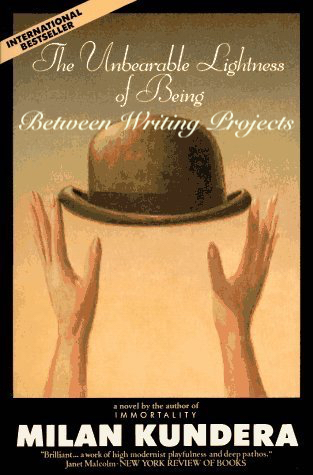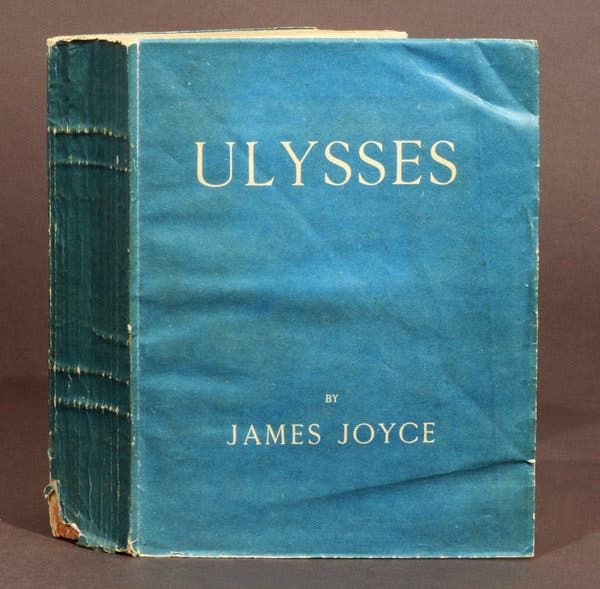The Unbearable Lightness of Being Between Writing Projects
By A.H. Reaume
Lately, I’ve felt a bit unmoored. For the last 6 years, I’ve organized my spare time around working on my novel. I’ve either been working on it or worrying about not having time to work on it, or spending time I should be working on it procrastinating and feeling guilty that I’m not working on it. All of these things were critical to my writing process.
But it’s done now and with beta readers and I don’t quite know what to do with myself right now.
When people learn I’m a writer, they sometimes ask me where I get my ideas.
“From my younger self,” I often tell them. “I have about a dozen novels I want to write that are in various stages of being written and planned out.”
The problem with primarily writing novels is that by the time you finish a work, you’re often no longer as interested in the ideas and concepts that animated it. It’s not that you find the ideas boring – but that they are old obsessions that you’ve spent a lot of time thinking and working through. You’ve moved on. And in the interim, you have developed all sorts of new obsessions and interests and had a bunch of great ideas for things that would make a good next project. My writing projects ideas folder can be read like an archeological dig of my various obsessions over the last six years. But how do you decide which project to dive into next?
When people ask me what I’m working on right now, my answer often changes depending on the day. Sometimes I tell people I’m working on a memoir about being a caregiver for someone who is intensely suicidal. Other times, I’ll tell them I’m trying to rewrite the novel I wrote in my twenties which was a meditation on how the way we’ve traditionally written literary tragedies is constructed around privilege with its emphasis on noble and high born characters who lose everything and therefore creates more compassion for those who have more privilege or more to lose. Or I’ll tell them that I’m doing research for my big Ulysses-inspired project. Unfortunately, these are all true answers.
I say unfortunately, because my attention is divided and I feel like I don’t have a clear project to direct all my time and attention towards. I’m most interested in my Ulysses project but the research for it will likely take a year or more. The novel about tragedy is likely the closest to being done – but I sometimes wonder if it’s actually salvageable with a rewrite or not. And while I don’t want to wait too long to write the memoir, it’s a traumatic topic to write about and I don’t always have the emotional capacity to work on it.
And those are just three of the projects that I could be working on.
The problem with being in the early stages of a project where you’re spending your time doing research or rereading a work in anticipation of a rewrite is that you can sometimes feel like nothing is actually getting done or that you’re not truly making progress. Meeting your word count or editing a chapter is such a tangible accomplishment. But reading an article or a book or scrolling through half the internet to track down the answer to something you later realize you didn’t need to know can feel like a pointless waste of time.
Even when I can see the ideas for the work getting sharper, I sometimes feel restless rather than productive. I’ll get so excited by certain veins of research that I get impatient about how long research takes. I just want to read all the books I need to read immediately so all that knowledge is in my head and I understand the ideas better today. I don’t want to wait the month or two it will take to actually work my way through those books. I want to know what I need to know NOW.
Your CanLit News
Subscribe to Open Book’s newsletter to get local book events, literary content, writing tips, and more in your inbox
As you might have guessed, patience is not my strong suit.
And the problem with being between projects or being in the early stages of projects is that you have to get good at being patient, at doing things that might not be productive, at going down routes that end up being pointless and at getting comfortable with uncertainty. That’s hard.
It’s about understanding that finding your next project is a process and not a quick decision. After all, a book length work is something that is measured in years of your life – it’s not a small commitment. Deciding what work to commit to next is about both feeling and working your way towards the answer. That answer will come slowly. Or maybe it’s already there and you just don’t want to accept it because you’re afraid of what that project will ask of you or you worry that you won’t be able to complete it (*cough* my Ulysses project *cough*).
What I’m doing right now is exploring. And that’s important work. I’m reading more than I’m writing. I’m learning more than I’m setting thoughts down. I’m thinking deeply about what I want to write about, about the form I want to use, about the future of the novel, and about what ways I want to play with the novel or memoir form in order to better fit the stories I want to write. This is intensely productive work – even though there isn’t yet anything tangible to show for it despite a stack of read books and highlighted academic articles. But I feel my future words growing and getting more real. My characters are taking their first breaths. My chapters are arranging themselves in the order that they will take.
I know I’m not the only one in this part of the writing process right now. I also know that I’m not the only one feeling all these things. So much of writing isn’t about setting words down on the page, or moving them around when you edit, or even seeing your work published someday. So much of writing is about the things you need to tell yourself to keep going. It’s about the things you need to tell yourself to make the writing process feel less terrible, less frustrating, and less unending. It’s about finding ways to make invisible progress visible so that you keep doing it day after day until something accumulates from nothing.
I was talking to a writer friend about the practices that I have integrated into my writing life to make it more joyful. I recently wrote about one of those things – how I celebrate finishing every stage of the writing process. But I’ve also included things in my writing process that make writing more enjoyable to me on a daily basis. I’ve found it’s about hacking your own psychology and figuring out the things that motivate you or give you pleasure and then finding ways to include similar strategies in your writing process in a way that makes writing more fun.
It’s important for me to always feel like I’m moving forward and that means having clear goals and being able to feel like I’m consistently achieving them. I’m a big fan of daily word counts and chapter editing goals for that reason. So, I’ve set myself a goal of reading one academic article on a topic that I’m researching every day. I then keep the stack of read articles in a visible place in my house so that I can see it grow and feel the progress that I’ve made. I do the same with books that I’ve read as research.
I also am very social and like to talk to friends about things that I’m working through or thinking through. So, I’m prioritizing phone chats and meet ups with friends who have a similar interest. Not only does this help me better understand what I’m learning but it also makes me feel the ways in which my research isn’t just helping me better sculpt my project’s outline but how it’s also making my intellectual and social life richer.
Because I’m still feeling unmoored, I’ve been trying to think of new strategies that I can integrate into this part of the writing process. I want to start a notebook to also keep track of everything that I’m doing on a daily basis to move myself forward. That way, when I feel like I’m not making progress, I can open that notebook and see all that I’ve already accomplished. I also want to find a research accountability buddy that I can check in with who will hold me accountable and complain about this part of the writing process with.
These strategies are all designed to make progress at this stage of the writing process feel more tangible, more social, and more accountable – things that help me enjoy writing more. If you’re struggling with the planning stage of the writing process – or any other stage --- you need to think about what might help you make it more enjoyable. Spend some time thinking about what you could do that would increase your feelings of accomplishment and joy while doing research.
I’m not sure when I’ll know which project I’ll end up devoting my attention to next – but I am going to try to trust that this process is worthwhile and valuable and productive. I hope if you’re also in this in-between period between projects, you’ll be able to trust that it will lead somewhere too. Because that’s all we can do – work day after day and trust that it will someday become more than just scribbled notes and half-formed thoughts. That it will eventually become an outline, a draft, a completed book.
The views expressed by Open Book columnists are those held by the authors and do not necessarily reflect the views of Open Book.
A.H. Reaume is a Vancouver-based fiction writer who reads too much and is currently in too many book clubs (four in total). Reaume has a background in feminist activism and an M.A. in Canadian Literature from UBC. She's been published in the Vancouver Sun, The Globe and Mail, USAToday.com, and Time.com and is currently trying to finish her first novel.





